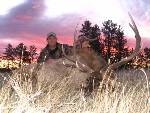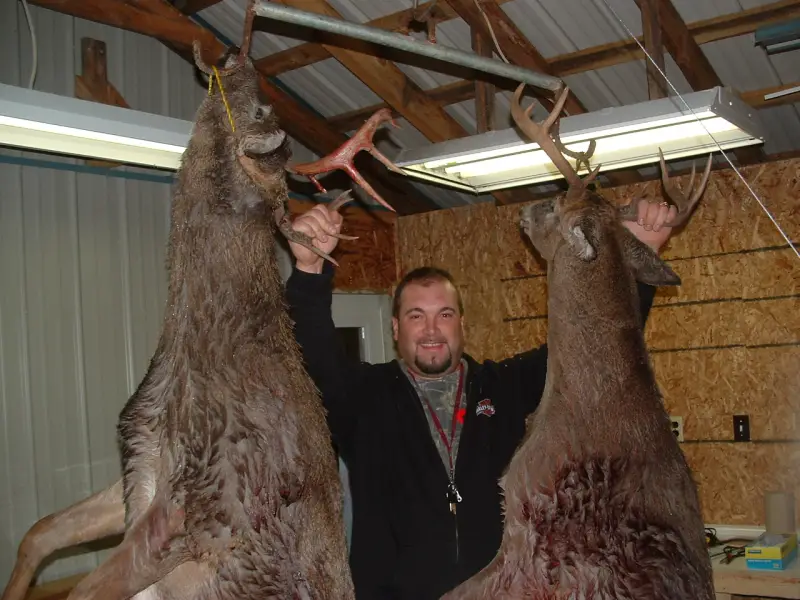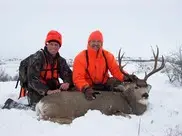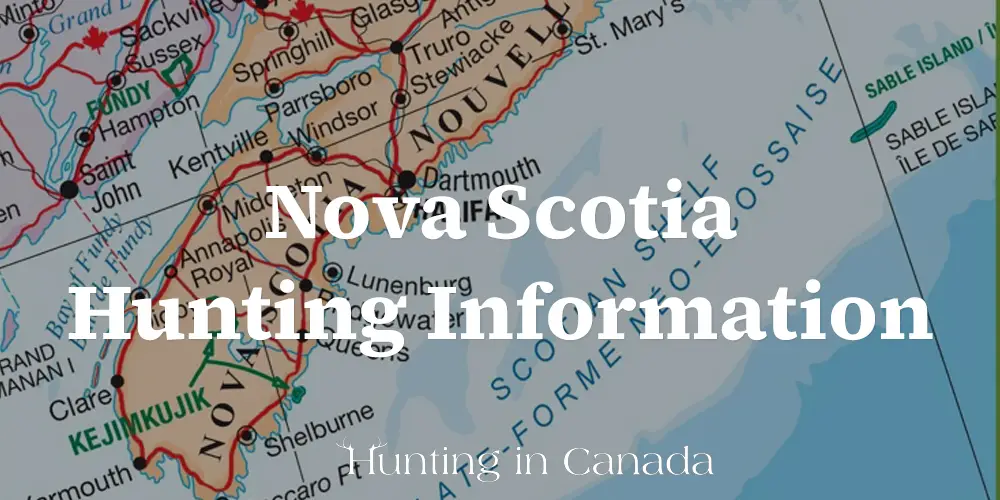Hunting Licences
Recreational hunting licences can be purchased from the Department of Natural Resources and Renewables Offices and retail vendors across Nova Scotia.
Requirements to Hunt in Nova Scotia
1. If you are a Nova Scotia resident and you wish to hunt in the province, you will need the following:
1. Valid Nova Scotia Hunting Licence
2. Nova Scotia Wildlife Resources Client Card
3. Any Federal licences or permits applicable to carrying a firearm and/or pursuing federally regulated wildlife.
4. Wildlife Habitat Stamp (acquired at the time of purchase of hunting Licence).
First Time Hunters
All first-time hunters in Nova Scotia must have completed bowhunter education if they intend on hunting with a bow. If hunting with a firearm, hunters must be trained in firearm safety and hunter education.
The Hunter Education Program is divided into two parts which are the Canadian Firearms Safety (non-restricted) Course and Atlantic Provinces Hunter Education Course.
2. To hunt in Nova Scotia as a non-resident, you need the following:
1. Valid Nova Scotia Non-resident Hunting Licence
2. Either; a valid Hunting licence issued in the last five years, or proof that you have taken a sanctioned Hunter Education course in your normal state or province of residence, or a valid Nova Scotia Non-Resident Wildlife Resources Card.
3. Licensed Guide or a resident who is over 19 and has obtained a Special Permit to Guide.
4. Wildlife Habitat Stamp (acquired at the time of purchase of Hunting Licence)
5. Any federal licences or permits applicable to carrying a firearm and/or pursuing federally regulated wildlife. Also, you must meet the requirements under the Canadian Firearms legislation if you are travelling to Nova Scotia from outside of Canada.
Note: Furharvester licences are only issued to Nova Scotia residents who have a Wildlife Resources Card with FT or FQ certification ( They are not issuable to non-residents).
Hunting species
1. Deer
2. Bear
3. Snowshoe hare
4. Ruffed grouse
5. Ring-necked pheasant (male only)
6. Fox & coyote
7. Bullfrog
8. Crow
9. Moose
10. Beaver
11. Bobcat
12. Otter
13. Mink, muskrat, red squirrel, skunk, and weasel
14. Raccoon
15. Migratory Birds
Hunting Seasons
The hunting season dates differ for each type of hunting species. For instance, the deer and bear hunting season dates are during the months of September through December. There are also bag limits to consider.
While the hunting season for the snowshoe hare is from November to February, and the ruffed grouse hunting season is from October through December.
The hunting season for the ring-necked pheasant (male only) is during the months of October through December, while the moose hunting season is from September to December.
The bullfrog hunting season is from July through September. And the crow hunting season is during the months of September through March.
The hunting season for the raccoon is from October through March, while the otter and bobcat season is from November through February.
The hunting season for mink, red squirrel, weasel, muskrat and skunk is during the months of November through March. The fox and coyote hunting season dates are from October to March. And the beaver hunting season dates are during the months of November to March.
When it comes to geese hunting, their hunting season dates are during the months of September through January. The hunting season dates for woodcock and snipe are from October to November.
Hunting Zones
Here are a few hot spots for hunting:
1. Black Bears
Although Richmond County typically has a very small hunter harvest, you can find black bears throughout Nova Scotia.
The highest number of bears is usually given up by Cumberland County, while Pictou and Colchester Counties have had some very productive years as well.
2. Whitetail deer
With the harvest rising steadily over the past several years, deer continue to do well in Nova Scotia. In order to hunt a white-tailed deer, traditionally productive zones like 107 (Truro), 102 (Bridgewater), and 101 (Yarmouth) are considered good choices.
Although with deer in each part of Nova Scotia, hunters really can not go wrong hunting close to home.
3. Moose
There is a stable moose population on Cape Breton Island, which includes some big bulls. Moose licences are highly sought after, with an average hunter success rate that has been about 67 percent.
Over the past five years, hunter’s effort has been fairly consistent as well, clocking in at 133 hours per moose killed.
Meat Permit (Wildlife)
You will need this permit if you want to:
1. Keep the meat of pheasant, rabbit, deer or grouse (partridge) after April 30 ( for instance, if you have a supply of deer meat in your freezer which has not been used up by April 30)
2. After April 30, if you receive more than 15 pounds of deer meat which you did not legally hunt yourself ( for instance, a deer has been killed by another hunter or a road-killed deer)
3. keep the moose meat at any time of year after it has been dressed/ prepared for storage
Note: you can keep up to 15 pounds of legally taken moose meat till July 31 of the year following the kill without the need for that permit
Additional Information
1. If you want to keep deer meat ( which you did legally hunt yourself), you must retain your Deer Hunting Licence. It must be dated, signed, and stamped by a deer registration agent. If you killed the deer yourself, this would serve as a valid permit for keeping/storing the meat till April 30 of the following year.
2. From May 1 till the next deer season opening, the possession of deer meat without a valid Meat Permit issued by the Department will be illegal.
3. A moose hunting licence, tags, and companion licences act as a transportation permit for a moose from the killing location to the home of the hunter or place where the meat will be prepared for storage. And they also serve as a storage permit till July 31 of the year following the kill.
4. After July 31 of the year following the kill, those who possess moose meat must obtain a Meat Permit which has been renewed.
5. If you kill a moose or a deer legally, you may transfer up to 15 pounds (only) to one other household. This meat may be stored without a Meat Permit till July 31 of the following year in the case of moose and till April 30 in the case of deer.
Transportation outside Nova Scotia
Anyone who wants to export any live wildlife, or wildlife carcasses, pelts, hides or parts of a carcass out of Nova Scotia will need a Wildlife Export Permit. This permit:
1. It enables the movement of CITES-listed species to other Canadian provinces.
2. It enables movements of species not listed in the Convention on International Trade in Endangered Species (CITES) to any destination.
3. It does not authorize the export of CITES-listed species outside of Canada
Note: The species that are legally possessed by a non-resident hunter under a Deer, Small Game, and Bear Hunting Licence do not require Separate Export Permits. The hunting licences will act as their export permits.
No transportation company, agent or other common carriers shall receive, deliver or transport any wildlife or parts thereof (which include meat) unless the shipment is labelled or tagged with the description of the content, Licence number and name. [13]
Hunting Outfitters In Nova Scotia
Here is a list of the hunting outfitters in Nova Scotia:
5. Canadian Black Bear Outfitters
6. Annapolis Valley Outfitters




